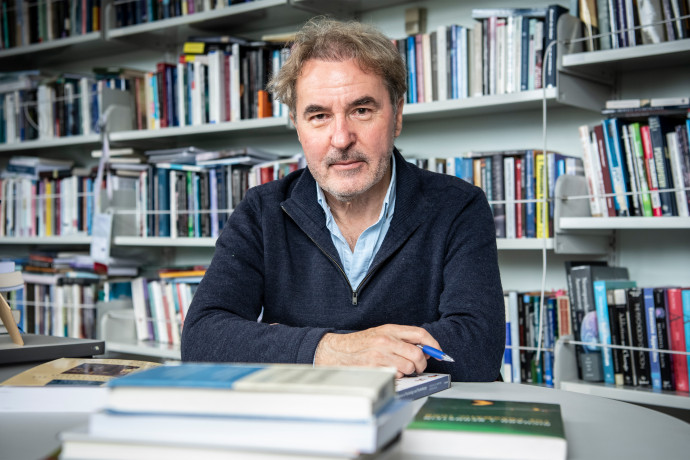2021 Mason Durie Medal: Transforming the treatment of violent individuals

Professor Tony Ward FRSNZ has been presented the Royal Society Te Apārangi Mason Durie Medal for advances in the frontiers of social science, for original research on treating violent individuals that has been hugely influential around the world.
The award by Royal Society Te Apārangi recognises an outstanding contribution to the social sciences that while originating in a New Zealand environment, has had an international impact.
Tony is a clinical psychologist who has been working in the clinical and forensic field for over three decades. His pioneering research has transformed the way correctional rehabilitation is viewed around the world, positioning New Zealand on the global map for forensic psychology.
Just over twenty years ago, two of Tony’s most ground-breaking papers presented a theory of cognitive distortions in individuals who committed sexual offenses, which is now regarded as one of the most prominent contemporary models in this domain of offence. Since then, Tony has introduced a range of concepts and widely used models in the social sciences (particularly forensic and criminological psychology), which are applied around the world.
One of Tony’s most notable pieces of work is the development of the Good Lives Theory of Rehabilitation, or the Good Lives Model (GLM). GLM showcases that offender wellbeing and the likelihood of offending are linked, and therefore the best way to create a safer society and reduce the risk of re-offence is to assist individuals to adopt more fulfilling and socially integrated lifestyles.
Tony found that the primary good of individuals, for instance intimacy or agency, is often the underlying cause of their offence. Therefore, it is important to identify this primary good and consider how it can be put into action for good – in a way that is both fulfilling and socially acceptable. This leads individuals to develop positive skills in other areas, which in turn decreases their motivation to offend.
GLM is a highly ethical risk-management and strength-based model which, within the last decade, has transformed both national and international views of correctional rehabilitation. It is a comprehensive framework that takes culture and individuality into consideration, alongside the work of therapists, teachers or vocational trainers, and clinicians working at all levels to ensure an effective intervention plan. GLM has been credited as completely reshaping correctional models across Aotearoa and internationally; 50% of US programmes and 90% of Canadian programmes now cite this model as one of their major guiding theories.
Other key pieces of Tony’s work include the pathways model of sexual offending, ethical principles applied to correctional psychology, the integrated theory of sexual offending, and the extended theory of mind. This work has driven substantial empirical research projects around the world and resulted in treatment programme innovations in at least 15 countries – countries where he has also been enthusiastically invited to give talks and keynote addresses on his work.
Tony has been made adjunct or honorary professor at several leading universities in recognition of his work over the last 15 years. In 2017 he was elected a Fellow of Royal Society Te Apārangi for distinction in research and for advancing science. He has over 400 academic publications, has been cited over 35,000 times on Google Scholar and is ranked in the top 2.5% of researchers registered on the international website Researchgate.
Tony is currently a Professor of Forensic Clinical Psychology at Te Herenga Waka—Victoria University of Wellington.
Award:
The Mason Durie Medal will be awarded annually to the nation’s pre-eminent social scientist. It is intended to recognise an outstanding contribution to the social sciences that while originating in a New Zealand environment, has had an international impact.
Citation:
Professor Tony Ward FRSNZ has been presented the Mason Durie Medal for advances in the frontiers of social science by Royal Society Te Apārangi, for original research on treating violent individuals that has been hugely influential around the world.
